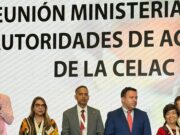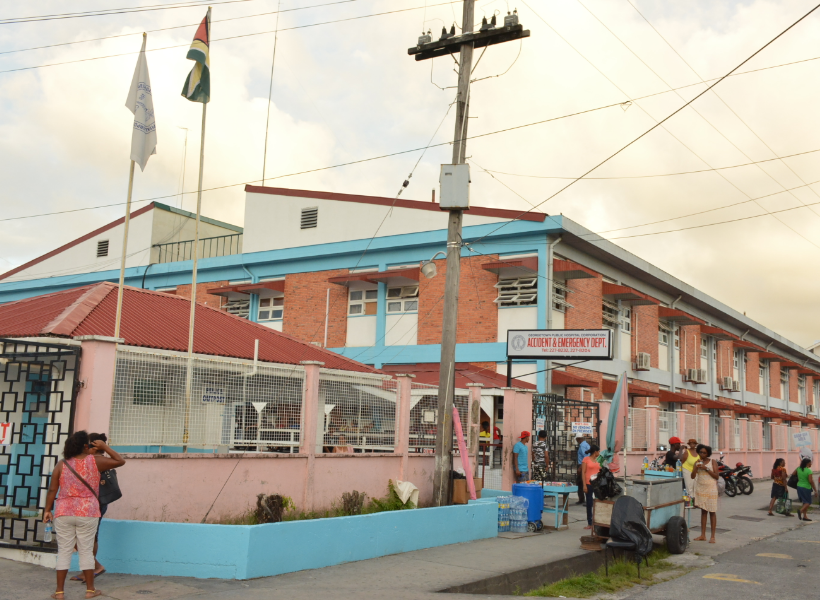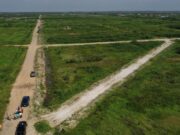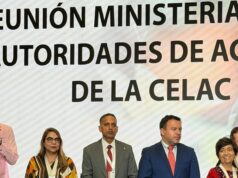Dear Editor,
The Alliance for Change’s (AFC) social protection policy aims to target the 48% of Guyanese living in poverty and exclusion. It includes cash transfers and targeted payments to groups classified as “poor,” “very poor,” and “extremely poor.” Cash transfers will address structural problems in deprived societies by making payments to ensure school attendance and participation in healthcare, thereby strengthening human capital as a joint responsibility between government and families.
The broad policy plan will include targeting groups based on self-declared household income; individuals will not be excluded due to lack of evidence of formal income, given that approximately half of Guyanese are living in transient or absolute poverty. Empirical studies from the IDB and FAO confirm that poverty-stricken communities are characterised by families skipping one meal a day to survive. Locally, the New Guyana Marketing Corporation (NGMC) reported that basic food prices have increased by 75% over the last four years.
A simple random survey (community engagements) conducted by AFC across Guyana—including improvised communities and remote mountainous terrain—reveals a highly unequal society. The recurring complaint is: “The rich are getting richer; the poor are getting poorer.” The pressing question is: “Where is the oil money?” This troubling reality of citizens barely scraping a living in oil-rich Guyana is untenable. Citizens must be assured that the government is merely the custodian of oil revenues, which amount to an average of GYD 1.5 billion daily; yet more than half the population remains improvised.
An immediate policy intervention would involve synergies that are complementary at the family level—specifically in schooling, health, and nutrition—through cash payments for school attendance, children’s vaccination, and participation in vocational training courses. The UNICEF report reveals that our children suffer from wasting, a form of child malnutrition that unfortunately places Guyana at the top of the charts in Latin America and the Caribbean. It is well known that childhood nutrition significantly impacts cognitive development, and there is a plausible correlation between poverty, learning outcomes, and the high school dropout rate in our most vulnerable communities.
Inclusion of marginalised groups such as street dwellers in the city, differently abled individuals requiring more resourced programmes for equitable participation in education and employment, and indigenous peoples—who are often difficult to reach due to remote mountainous terrain—is essential. Some inclusive social protection programmes could include indigenous-trained doctors working in local hospitals to reduce fatalities related to childbirth, chronic illness, and medical emergencies that are often air-dashed to the city; training indigenous teachers; constructing more built schools—such as in Waramodong village in the Upper Mazaruni, which serves students from six villages; and developing indigenous curricula aligned with environmental sustainability, which can serve as a means of economic survival.
In this context, the AFC’s plan aims to “keep people out of poverty” through social insurance measures such as livelihood diversification, rural credit, and microfinance, supporting long-term growth with income-generating activities. It also seeks to “lift people out of poverty” via targeted or general cash transfers, conditional cash programmes, mother-to-child health initiatives, and subsidised agricultural inputs—addressing structural issues like poverty, vulnerability, and food insecurity in the 50% of communities living in poverty across Guyana.
The policy’s overall goal is to end the vicious cycle of intergenerational transmission of poverty within impoverished households. One outcome should be empowering younger generations to realise their innovative and creative potential. They deserve the opportunity to pursue careers in Guyana’s economic growth—beyond manual labour in plantation fields—and to study agriculture as a science. Succeeding generations should not be rendered void of innovative career prospects due to political greed.
The family grant will be institutionalised within a dedicated department tasked with combating poverty, including indigenous populations often excluded due to the lack of decentralised government services in interior locations. This policy action will ensure that Guyana’s oil wealth is distributed fairly and equitably.
Yours sincerely,
Dianna Rajcumar
Candidate, Alliance for Change











